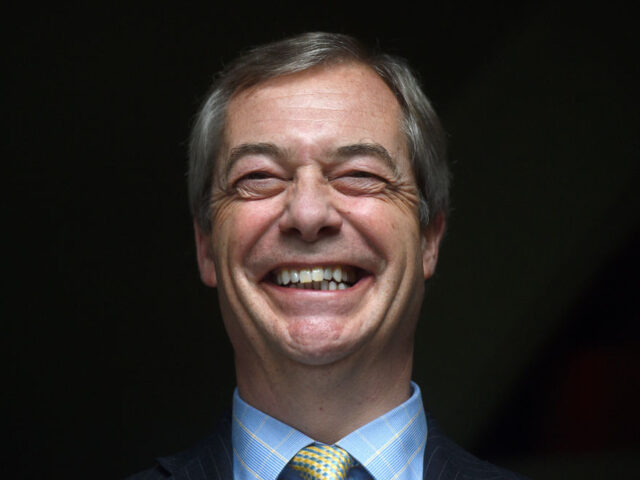UK banks may be required to protect free speech in new rules reportedly being drawn up by the government after the publication of evidence that Brexit leader Nigel Farage, contrary to claims from the establishment media, was debanked for his political views.
The British government is to tell banks and payment service companies this week that they should not discriminate against their customers due to their beliefs and the government is to draw up new rules to enforce this, a report in government-adjacent broadsheet The Daily Telegraph reports.
Debanking Has Arrived: Farage Pursues Legal Action as He’s Left Without Bank Account https://t.co/OVcqD4x7jY
— Breitbart London (@BreitbartLondon) June 30, 2023
The move is in response to the revelation by Nigel Farage that he was being ‘debanked’ at the end of last month, saying that having had accounts with a top British bank — later revealed to be the exclusive, but part-state-owned Coutts — for decades, they were suddenly terminating the relationship without reason. Parts of the establishment media including the BBC dismissed Farage’s claims, insisting he’d simply got the boot because he wasn’t wealthy enough for the upmarket banking house, but this was subsequently categorically disproven after a legal request for Farage’s files showed he was being excluded for his political views and associations, including with Donald Trump and sports star Novak Djokovic.
The reputation of Coutts and their handling of the controversy took a major hit this week having claimed their ability “to respond is restricted by our obligations of client confidentiality”, a claim that came just days after they briefed against their own longstanding customer Mr Farage to the BBC.
Per the Telegraph report, the government is now exploring adding a freedom of speech defence requirement to the licences under which banks operate, meaning debanking individuals for their views would result in the bank losing their licenses. Further, when bank accounts are withdrawn people should be given three months’ notice and be given the chance to appeal.
Nigel Farage Debanked over Ties to Donald Trump and for Expressing Conservative Views, Bank Docs Show https://t.co/uSdvkT1uUV
— Breitbart London (@BreitbartLondon) July 19, 2023
Former Chancellor — the British name for finance minister — Kwasi Kwarteng MP was scathing of the actions of the bank, which through its parent group the Royal Bank of Scotland is part-owned by the government through a massive bailout in 2008. He said on Thursday: “… if the money in those accounts is used for illegal purposes, then yes, sure, that’s something to act on. But the idea that Nigel was essentially cast out, simply because of the views he held and has expressed publicly, I think the word that the Home Secretary used was ‘sinister’.
“That’s a sinister development, that’s something we haven’t seen, and I think it’s something that we should fight to prevent spreading.”
Speaking today, Nigel Farage said he had blown the whistle on a banking system which had already ‘debanked’ a great number of people “who don’t have a platform… who have been closed out, and that’s really awful”.
He said: “…if we don’t nip this in the bud, who the hell is going to go into public life in Britain? If your family [are going to be debanked], that really is a price too high for going into politics, or a senior position in the judiciary, or whatever it is. I’ve been aware for some years now that thousands of people are being shut down by the banks, particularly people taking cash, as they want to drive us towards a cashless society”.
Mr Farage urged anyone who had been debanked to take the action he had, by making a Subject Access Request, a legal demand on institutions to release the data they hold on you.
Nigel Farage Warns of Cashless Society ‘Tyranny’ as UK Treasury Chief Latest to Have Bank Account Blockedhttps://t.co/LWI1SAVDXf
— Breitbart London (@BreitbartLondon) July 11, 2023
Editor’s note 20/07/23: This article was edited for clarity.

COMMENTS
Please let us know if you're having issues with commenting.